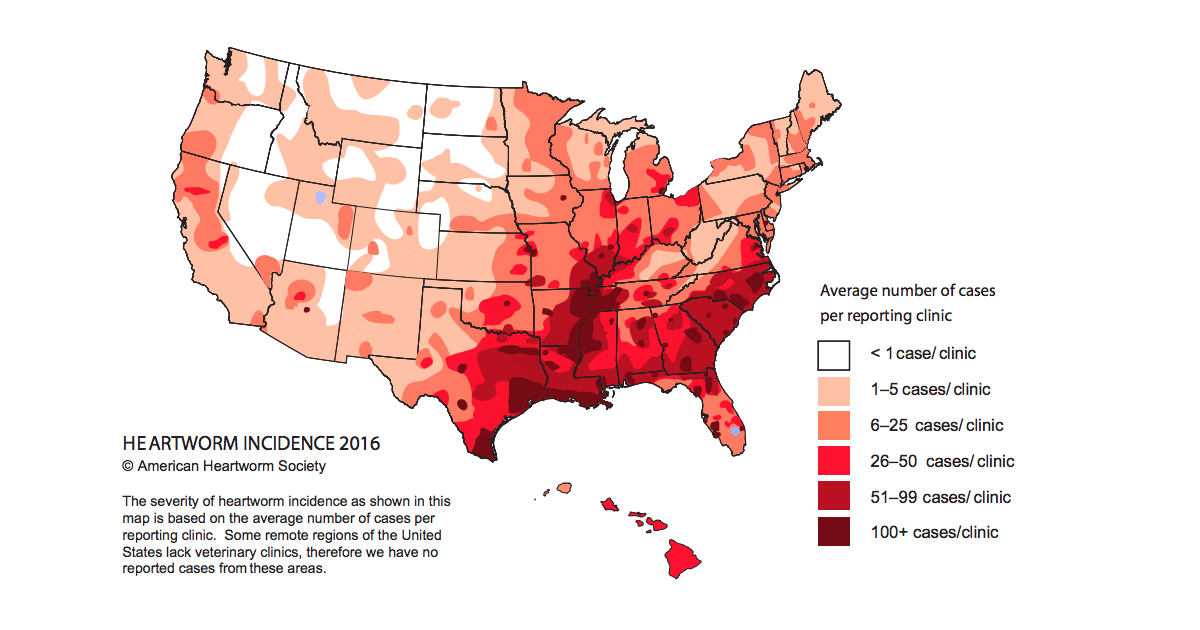Keeping Your Dog Heartworm Safe
A single bite from a single infected mosquito can cause an otherwise healthy dog to develop heartworm disease and potentially die.
A heartworm is a parasitic worm (Dirofilaria immitis) that lives in the heart and pulmonary arteries of an affected dog. The worms travel through the bloodstream, damaging arteries and vital organs as they go, before arriving at the lungs and heart approximately six months after that initial mosquito bite. Several hundred worms can live in a single dog from between five and seven years, and if left untreated, can prove fatal.
The best protection against this insidious disease? Prevention. Prevention is both safe and effective, whereas treating the disease itself is complicated, costly, and can, like the disease, have serious, even fatal, effects on the stricken dog.
Preventives work by killing the heartworm larvae (microfilariae) before they can grow and mature into adult heartworms. Although a variety of preventives are now available to conscientious pet owners everywhere, the first step in the prevention process is a visit to the vet.
Most vets recommend yearly testing for heartworm in dogs older than 6 months, usually in late spring. If your dog is heartworm negative, inexpensive, chewable pills are available with your vet’s prescription. The pills, which are palatable to most dogs, must be given to your dog monthly, and are manufactured by several companies. These pills can also be given to dogs under 6 months of age without a blood test.
Besides pills, there’s a vet-administered injection called ProHeart 6 whose effectiveness lasts for 6 months. There are also specially designed, chemical preventive products that you apply directly onto your dog’s skin. Application of these topical preventives should begin June 1st and continue for six months. Some heartworm preventives contain additional ingredients that will control other parasites, such as roundworms or hookworms, while the topical preventives prescribed by your vet will protect your dog against fleas and ticks as well.
If you choose the vet-prescribed pill, you can opt to give it to your dog only during mosquito season (from spring through the first frost), but the most recent recommendation from the American Heartworm Society is to keep giving them all year round. And remember, although your dog may not go outside, mosquitoes can still get inside.
For those preferring to NOT use either the pill or the topical preventive, homeopathic veterinarians advise testing your dog for heartworm twice yearly.
In short, consult with your vet. Protect the dog you love against these invasive, potentially fatal parasites, and this summer, all of you can rest, assured.
By Nomi Berger


